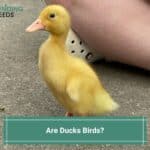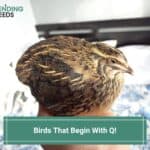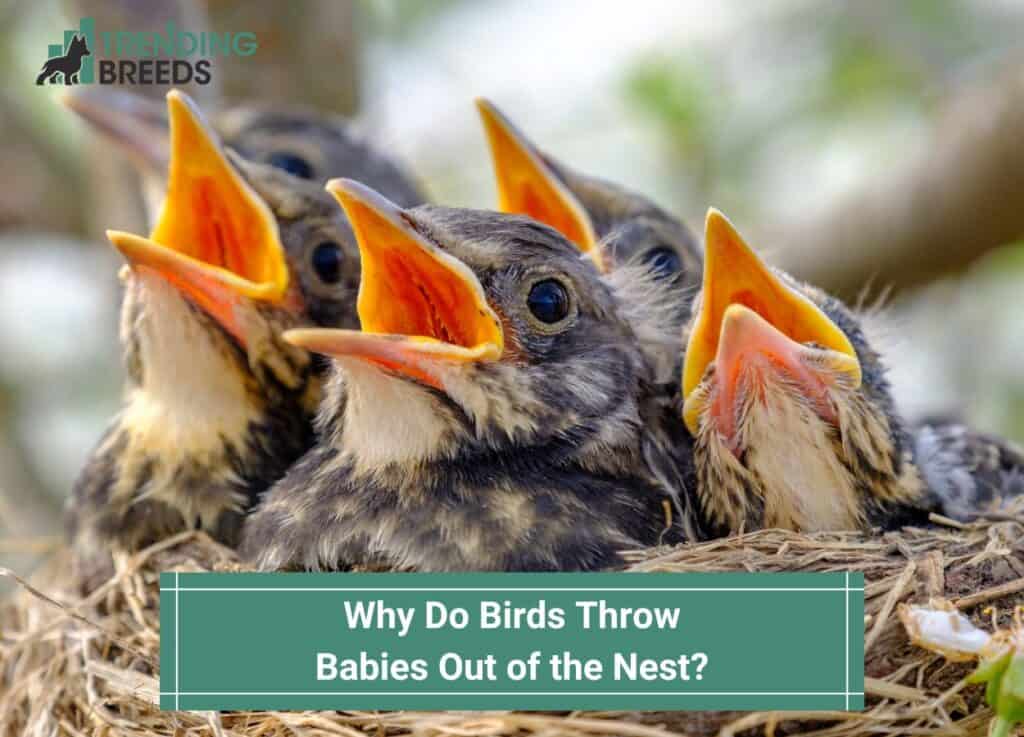
Birds throw babies out of the nest. This is something that almost any individual may find cruel. They might feel the need to intervene to help the bird. What should you do if you see this happen?
When a baby bird has passed away for some reason, the parents will often throw the chick’s body outside of the nest.
Not removing the dead chick from the nest could lead to disease transmission or scavengers’ arrival. Birds may also throw their young out of the nest to teach them to fly.
Before you scroll further down this guide, check out these other bird-related articles: Why Do Birds Dance to Music? and Are Birds Carnivores?.
Table of Contents
Why Do Mother Birds Throw Babies Out of the Nest?
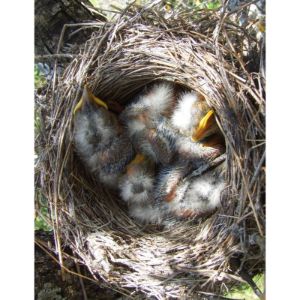
Mother birds may push their young out of the nest for several reasons. These are discussed in great detail below.
Teaching Chicks to Fly
During training, the young will descend to the ground, but their parents will continue to monitor their progress from a safe distance.
In humans’ case, parents will support their young children in standing and encourage their attempts and efforts to walk unassisted.
Like humans, parent birds use motivation and the concept of reinforcement to teach their young to fly.
The desire for food is the fundamental motivation for young birds, and they are aware that their mother will visit them at predetermined intervals to provide them with a small amount of food to eat.
Offspring are coerced into leaving the nest to obtain the food they need daily as their parents gradually move further away from the nest.
The newly hatched baby birds will soon understand the importance of the food, which will encourage them to descend from the branch. Most of their early attempts fail, but after enough repetition, they eventually succeed.
Young birds will eventually learn to stretch their wings and flap in flight. They can flap their wings to their maximum extent if they have developed the muscles and strength necessary to do so through consistent practice.
Averting Potential Predators
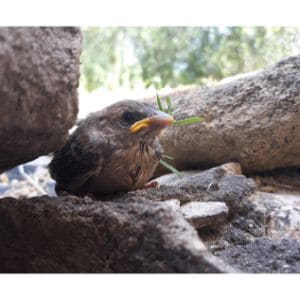
The presence of a sick or dying bird may be disastrous for its nest because it would attract predators.
When a mother bird senses that one of her young has been injured, sick, or unable to survive, she will either kick it out of the nest or kill it.
This is done to protect the remaining young and the habitat from being destroyed.
Do Mother Birds Throw Their Young If Humans Touch Them?
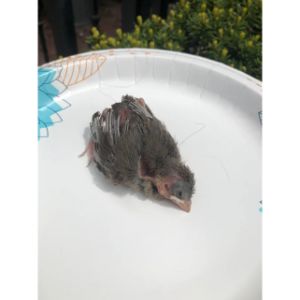
It is a common misconception that if you handle a nestling or hatchling, your scent will be left behind, and the mother bird will leave them behind if she smells it.
This urban legend is untrue, and you can aid and offer help to young birds that have fallen as long as they are not fledglings.
Parent birds do not use the sense of smell to identify their children or feed them.
If you come across a bird with few feathers that cannot walk, flutter, hop, or hold tightly onto your finger, you should take it back to its nest and check to ensure that the bird did not fly away on its own.
Baby birds that have not yet developed adult feathers are defenseless and could be preyed upon by animals like domestic cats and dogs, as well as other birds that prey on them.
First, take a moment to assess the situation around you to determine whether the chick has fallen out of the nest before offering assistance.
Most mothers are constantly monitoring their young and the safety of the nest; hence, it is in their best interest to return their young to the nest as soon as possible.
If the fallen birds have fully developed wing feathers, the ability to walk, sprint, or flutter, and strong toes that can grip twigs or your finger, they are fledglings.
Fledglings have a cute and fluffy appearance, and they have small tails. Their moms are going to look out for them. If you startle the baby birds, their parents, and siblings will take off in various directions.
Can Birds Get Their Offspring Back into the Nest?
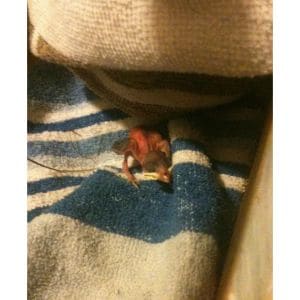
If a young bird has fallen out of its nest, it is quite unlikely to be able to get back in. Most avian parents lack the physical stamina to lift their young back up to their lofty nesting spots.
Although birds of prey such as eagles have the strength to carry huge loads, they do not typically carry their live chicks.
Young birds typically leave their nests well before they are ready to fly competently.
They frequently climb onto nearby bushes or branches or fall to the ground if they cannot reach their nesting spot.
They need not return to the nest, as their parents will continue to feed them regardless of where they happen to be.
Can Birds Relocate Their Young to a New Nest?
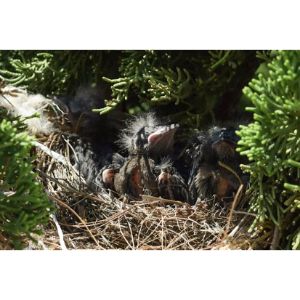
Almost no avian species physically relocates its young. For example, songbirds usually only use one nest per clutch.
In the event of a failed nesting effort, it is not uncommon for the parents to try raising a fresh brood in the same or a similar nest.
The Caprimulgidae bird family is an intriguing outlier in this regard. Some nocturnal birds, including nighthawks, can relocate their eggs to a safer location if their nest is disturbed.
Some researchers believe they use a calling technique instead of physically carrying or pushing their chicks.
Grebes, which raise their young by carrying them, don’t use nests for anything other than laying eggs.
These incredible birds can keep their young comfortable and dry by carrying them; hence, you could say that the parent’s back serves as the new nest for the first several weeks.
What to Do If You Find a Fallen Baby Bird
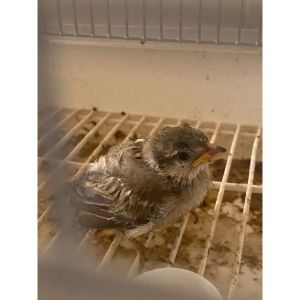
It’s common to come upon a fledgling bird or chick fumbling around in your garden.
An urban legend says if you touch a baby bird, you will leave your scent on it, which will cause the mother bird to reject the child.
This is not the case. If you see a bird that appears to have fallen from its nest, you can pick it up and bring it back, but first, make sure it is not a fledgling.
Look at the mother and the other young birds to determine if the bird is a lost nestling or a fledgling just starting to figure out how to fly.
The mother bird spends most of her time either foraging for food or keeping a watchful eye on her offspring from a distance. Therefore, the more you bother the bird, the more likely the mother will avoid you.
On the other hand, some intervention may be required. You can place the bird back in its nest if you can access it.
Another option is to use a plastic bowl and paper towels to create a makeshift nest for the baby bird.
Make holes for drainage in the bottom of the container, and then nail it to a tree or bush to drain properly. Follow up by inserting the baby bird inside.
Maintain a safe distance from the baby bird so that you can keep an eye on it and save it if it’s in danger from a larger animal.
Young birds are easy prey for various animals, including snakes, cats, dogs, and other birds.
Don’t get too close, or you’ll scare the parents away, but don’t get too far away either, or you won’t be able to help if needed. Just stand back and keep a watchful eye.
If you cannot locate a nest and have nothing to use as a makeshift nest, you should pick up the bird carefully using both hands.
It is then necessary for you to relocate the bird to a secure area that is near where it was originally nesting.
For instance, if the bird is located close to the road or the sidewalk, you should relocate it to a safer location to protect it from passing vehicles, people, and even dogs from the neighborhood.
It will be easier for the parents to keep an eye on the newborn bird if placed under dense vegetation or high in a tree. They likely have been observing you and can easily locate the infant.
The newborn bird’s parents will feed it and pay attention to it as soon as it chirps and makes noise.
If you believe the bird may have been hurt and requires assistance, contact your area’s wildlife rehabilitation organization.
Don’t try to handle the bird’s needs on your own. Baby birds have complex dietary needs and must be fed every twenty minutes.
Frequently Asked Questions
Do birds get sad when another bird dies?
Birds feel sad or stressed when they see one of their own die.
How long does a mother bird stay with her babies?
This depends on the bird. For songbirds, it might be two to three weeks. For predator birds like eagles, it might be ten to twelve weeks.
How long do birds sleep?
Birds can sleep for 10-12 hours a day.
Why Do Birds Throw Babies Out of the Nest?
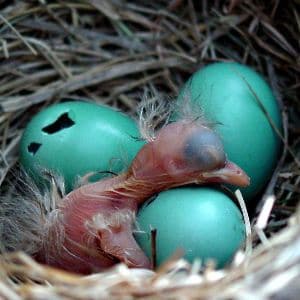
It might be difficult not to step in or intervene when you find a fallen baby bird on the ground.
But make sure you check if it’s a fledgling or a rejected baby bird. If you find that the bird is injured, call Wildlife Services immediately.
If you find this guide, “Why Do Birds Throw Babies Out of the Nest,” informative and helpful, you can check out these other animal-related articles from our team:
You can learn more about birds by watching “Amazing Facts About Birds” down below:

